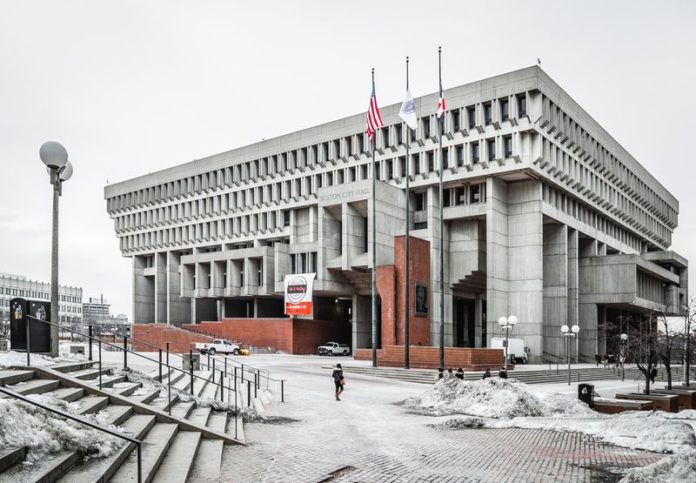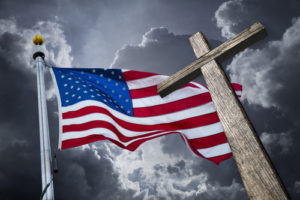
On Wednesday, the Supreme Court heard hearings for a case in which Boston denied a request to fly a Christian flag at city hall.
US supreme court considers Boston’s refusal to fly Christian flag at city hall https://t.co/46SQcjDjsz
— The Guardian (@guardian) January 18, 2022
The case’s judges and both parties concurred that it all boils down to whether the city’s policy of displaying flags of third parties is a commercial speech given in a public forum or governmental speech.
“Public Forum”
According to Boston’s lawyer, Douglas Harry Hallward-Driemeier, if it’s a public forum, the city admits it has no reason to exclude them.
To honor its variety, the city invites outside groups to seek to have flags flying, generally those of other nations or those celebrating holidays.
The flag in question in Wednesday’s case was from Camp Constitution, established by Harold Shurtleff. It seeks to improve understanding of the Judeo-Christian ethical legacy, along with the American heritage of grit and innovation.
This also includes the brilliance of the U.S. Constitution and the implementation of free enterprise, per their website. A cross is included in the design of the flag.
Shurtleff’s attorney, Mathew Staver, contended the city’s regulations deliberately included the word “public forum.”
This is therefore implying the flags would become a representation of the organization that applied for speech rights. He stated rejecting the request to identify the Christian flag is “obviously viewpoint prejudice” that breaches the First Amendment.
One issue considered by the judges, in determining if the flags were personal or government communication, was how a casual viewer might understand them.
Justice Stephen Breyer noted the flagpole is located beside the state and national flags outside the municipal hall. Of course, one would believe it had something to do with the city, remarked Breyer.
Yet, on the other extreme, Justice Samuel Alito pointed out the mast hoisted flags for Cuba and the People’s Republic of China, neither of which should seem to represent the local government.
Hallward-Driemeier, on the other hand, pointed out the city’s website claims “we” celebrate flags of numerous nations. The site also says its purpose is to foster diversity, implying the city chose to fly the flags to encourage its message.
A Conflict Between Church and State
Nevertheless, Justice Neil Gorsuch saw the case otherwise, noting the municipal commissioner who refused the flag request did so because he considered it a conflict between church and state.
If it’s incorrect (and they all accept it’s incorrect) and if this was the basis for the city’s petition decision, what’s there to decide, Gorsuch inquired.
The Supreme Court heard oral arguments on a religious freedom case. The case focuses on the city of Boston refusing to fly a flag from a Christian group outside of its City Hall. @BayerPicciotti, Director of the Conscience Project and Legal Analyst for @EWTNews, joins us. pic.twitter.com/XctjQugsC2
— EWTN News Nightly (@EWTNNewsNightly) January 19, 2022
After Justice Amy Coney Barrett pointed out the flag was intended for Constitution Day, Hallward-Driemeier conceded it would’ve been permissible if displayed in that context, rather than as a Christian flag.
Justice Elena Kagan appeared to concur with Gorsuch, adding it’s difficult not to conceive of it as a public forum and the issue boils down to a blunder.
















